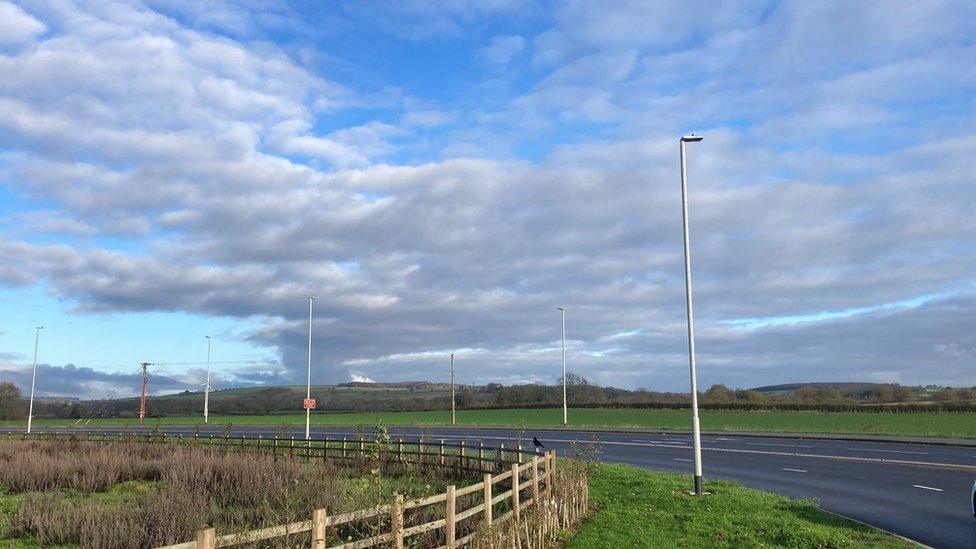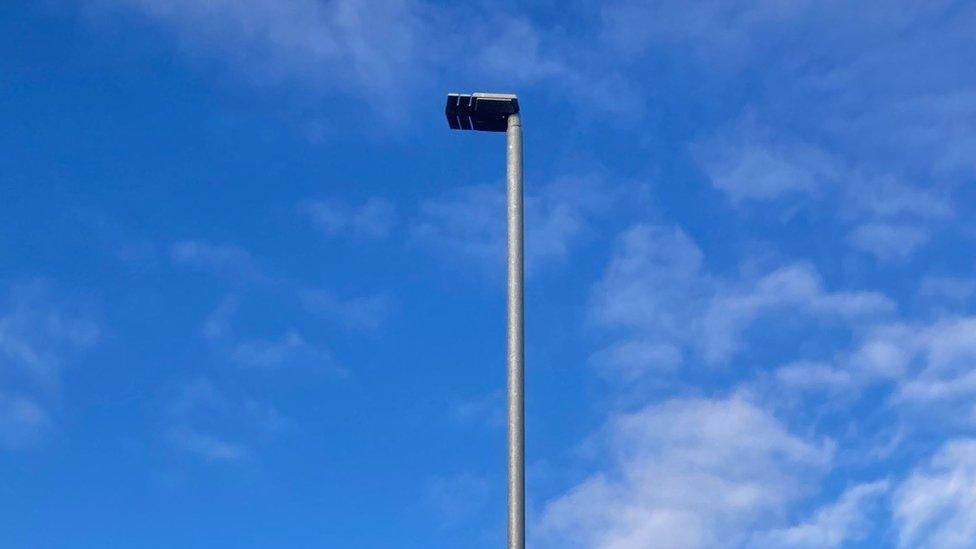Street lighting: East Yorkshire pilot aims to cut UK costs by £575m
- Published

The scheme would look at the main York to Hull road, the council said
The main Hull to York road could be used to test how to cut the cost of powering the UK's street lights.
East Riding of Yorkshire Council said work on the A1079 would examine how to decarbonise street lights, illuminated road signs and bollards.
It has applied for £5m from the Department for Transport to fund the pilot and believes cost-cutting measures could save about £575m a year.
The authority will work with other councils on the scheme.
Councillor Chris Matthews, cabinet member for environment and climate change, said the UK's 7.2m street lights used £1bn in energy each year.
It costs £2bn to replace light columns and a further £500m to replace lights each year.
He said that amounted to 500,000 tonnes of energy carbon and 500,000 tonnes of steel.
"We believe that this pilot could make a 15% saving on that amount," he said.

Chris Matthews said the only real attempt to decarbonise street lights was the introduction of LED lights
Mr Matthews said any savings would be limited by the need to comply with national standards on roadside lighting.
"The pilot is based on real-life trials which will review the current standards and develop new guidelines to be adopted nationally, with an ambition to change British codes of practice," he said.
If the bid succeeds the programme, called Live Lab, will explore more efficient "layouts for street lights, road signs and road markings".
The Live Lab will also include input from the Department of Infrastructure Northern Ireland, county councils in Cambridgeshire, Derbyshire and Lancashire, Westminster City Council and Sheffield University.
Mr Matthews said: "Street lighting is a major contributor of highway sector CO2 emissions of 500,000 tonnes a year."
He said energy consumption had improved, but the only attempt at decarbonising street lighting had been the introduction of LED lights.
"We need to look further," he said.

Follow BBC East Yorkshire and Lincolnshire on Facebook, external, Twitter, external, and Instagram, external. Send your story ideas to yorkslincs.news@bbc.co.uk, external.